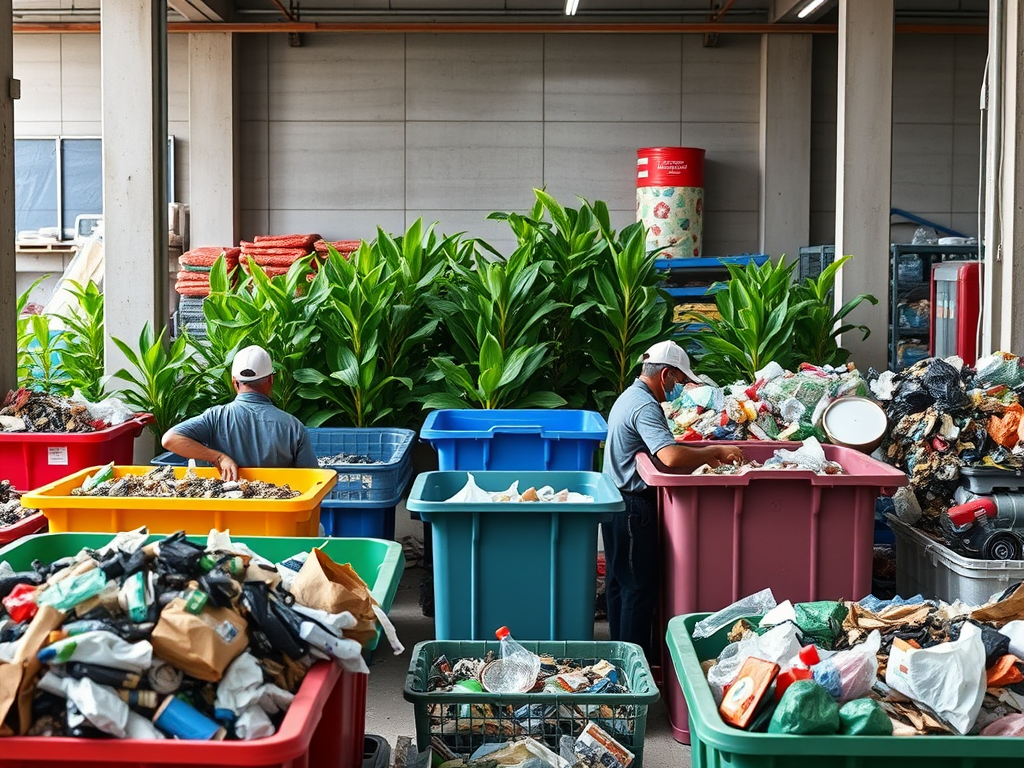Dubai’s circular economy initiatives are pivotal in fostering sustainable business growth while ensuring environmental conservation. By shifting from a linear economy, where resources are used and discarded, to a circular one, Dubai encourages companies to rethink their resource usage and waste management. This strategic transition not only enhances sustainability but also opens doors for innovation, efficiency, and long-term profitability. Through various policies and collaborative efforts, Dubai is positioning itself as a prominent player in the global sustainability movement. Businesses that align with these initiatives are likely to benefit from reduced costs, improved brand reputation, and increased competitiveness.
Understanding Circular Economy Principles

The circular economy is an economic system aimed at minimizing waste and making the most of resources. This model contrasts with the traditional linear economy, characterized by ‘take, make, dispose’ practices. By adopting circular practices, businesses can significantly contribute to resource conservation and environmental sustainability. Key principles include:
- Resource Efficiency: Maximizing the use of materials and energy through smart design and innovative technologies.
- Waste Reduction: Minimizing waste production and promoting recycling, repurposing, and the sharing of resources.
- Product Lifecycle Management: Extending the lifespan of products through maintenance, refurbishment, and recycling.
- Collaboration: Fostering partnerships among businesses, governments, and communities for innovative solutions.
By integrating these principles, Dubai encourages businesses to innovate, reduce costs, and attract environmentally conscious consumers, thereby driving growth and sustainability.
Business Benefits of Circular Economy Initiatives

Embracing circular economy concepts can yield numerous advantages for businesses in Dubai. Companies that adopt these practices can enjoy:
- Cost Savings: Efficient resource use and waste reduction can lead to significant cost savings.
- Innovation Opportunities: Circular initiatives encourage innovative thinking, opening new avenues for product development and services.
- Enhanced Brand Reputation: Companies that commit to sustainable practices can enhance their brand image and attract eco-conscious consumers.
- Access to New Markets: Businesses can explore new markets by offering sustainable products and services aligned with consumer demand for eco-friendliness.
- Regulatory Compliance: Adopting circular practices can help businesses comply with environmental regulations and avoid potential penalties.
These benefits illustrate how circular economy initiatives not only support environmental goals but also ensure economic viability and growth for businesses in Dubai.
Dubai’s government is instrumental in promoting circular economy practices through several initiatives aimed at creating a sustainable and competitive business environment. Relevant policies and programs include:
- The Dubai Circular Economy Strategy: Launched to promote sustainable practices across all sectors by 2030.
- Dubai Waste Management Strategy: Aimed at diverting waste from landfills through recycling and innovative waste management solutions.
- Partnerships with Private Sector: Collaborations with businesses to develop circular solutions and drive innovative projects.
- Investment in Green Technologies: Providing incentives for companies that adopt environmentally friendly technologies and sustainable business practices.
The government’s active role in supporting these initiatives makes it easier for businesses to transition to a circular model, ensuring a collaborative effort towards sustainability.
Challenges in Implementing Circular Economy Practices
While the benefits are substantial, transitioning to a circular economy is not without its challenges. Businesses may face:
- Initial Investment Costs: Implementing new technologies and processes can require significant upfront investment.
- Lack of Awareness: Many businesses may not fully understand the circular economy model or its potential benefits.
- Regulatory Hurdles: Navigating existing regulations can sometimes be complex when adapting to circular practices.
- Supply Chain Management: Redesigning supply chains to align with circular principles can be a daunting task.
- Technological Constraints: Access to advanced technologies that facilitate circular practices can be limited for some businesses.
Despite these challenges, the long-term advantages associated with circular practices far outweigh the hurdles, encouraging companies to pursue sustainable growth strategies.
Conclusion
In conclusion, Dubai’s circular economy initiatives are reshaping the way businesses operate, fostering growth and sustainability. By embracing circular principles, companies can not only benefit from cost savings and innovation but also contribute to a more sustainable environment. The support provided by the Dubai government enhances these efforts, solidifying the region’s position as a global leader in sustainability. As businesses navigate the challenges of implementing these practices, the potential rewards make the effort worthwhile. Ultimately, a concerted push towards a circular economy will benefit both the business community and the wider society as we strive for a greener future.
Frequently Asked Questions
1. What is the circular economy?
The circular economy is an economic model that emphasizes the continual use of resources, minimizing waste, and promoting sustainable practices across industries.
2. How can businesses in Dubai benefit from circular economy practices?
Businesses can benefit through cost savings, enhanced brand reputation, access to new markets, and compliance with regulations, all contributing to overall growth and sustainability.
3. What role does the Dubai government play in promoting the circular economy?
The Dubai government supports circular economy initiatives through policies, strategic programs, and partnerships with the private sector to facilitate the transition to sustainable practices.
4. What challenges do businesses face when implementing circular economy practices?
Challenges include initial investment costs, lack of awareness, regulatory complexities, supply chain redesign, and access to advanced technologies.
5. Why is sustainable growth important for businesses in Dubai?
Sustainable growth is critical as it aligns with global trends towards environmental responsibility, meets consumer demand for sustainable products, and ensures long-term viability in a competitive market.
Leave a Reply